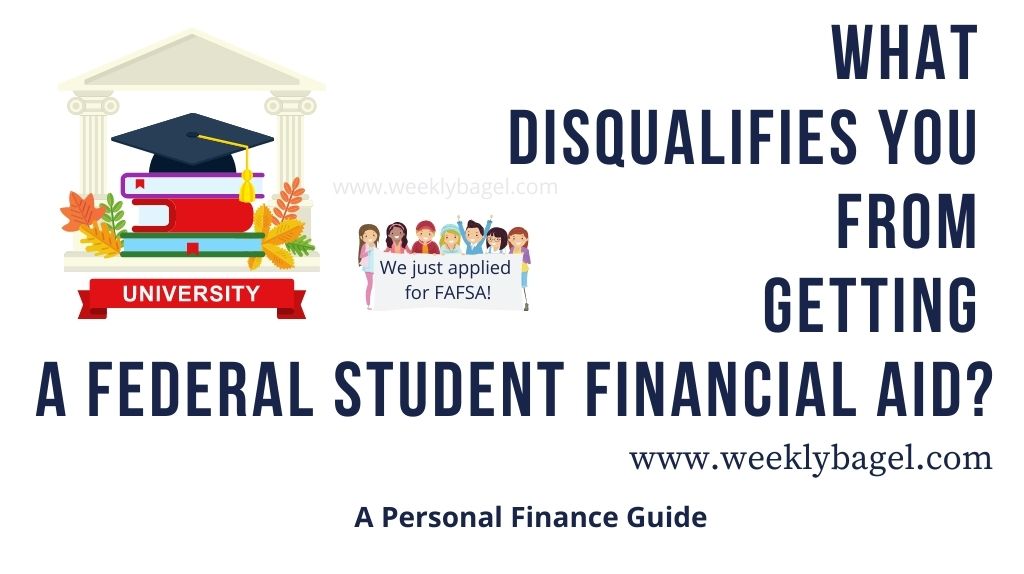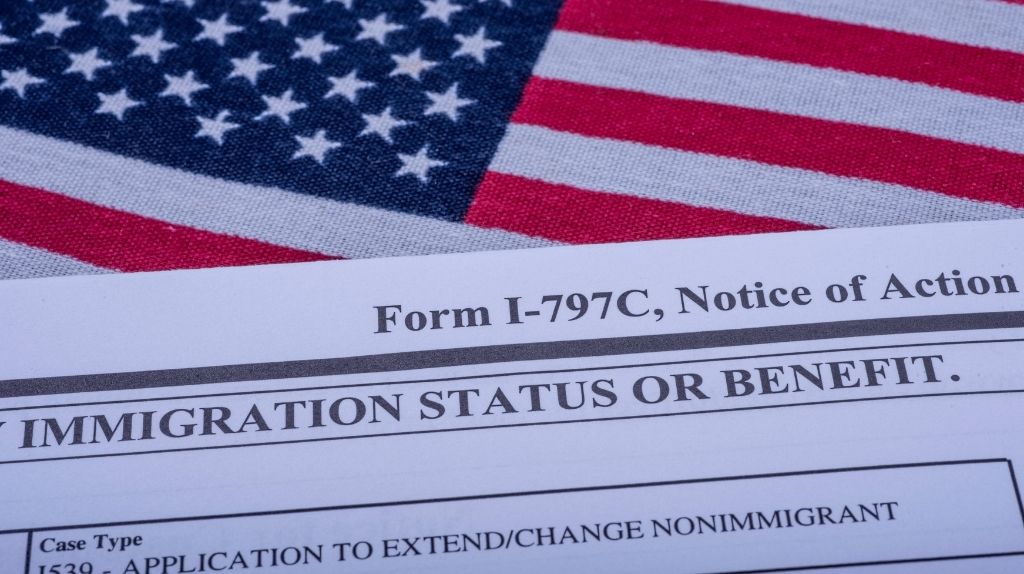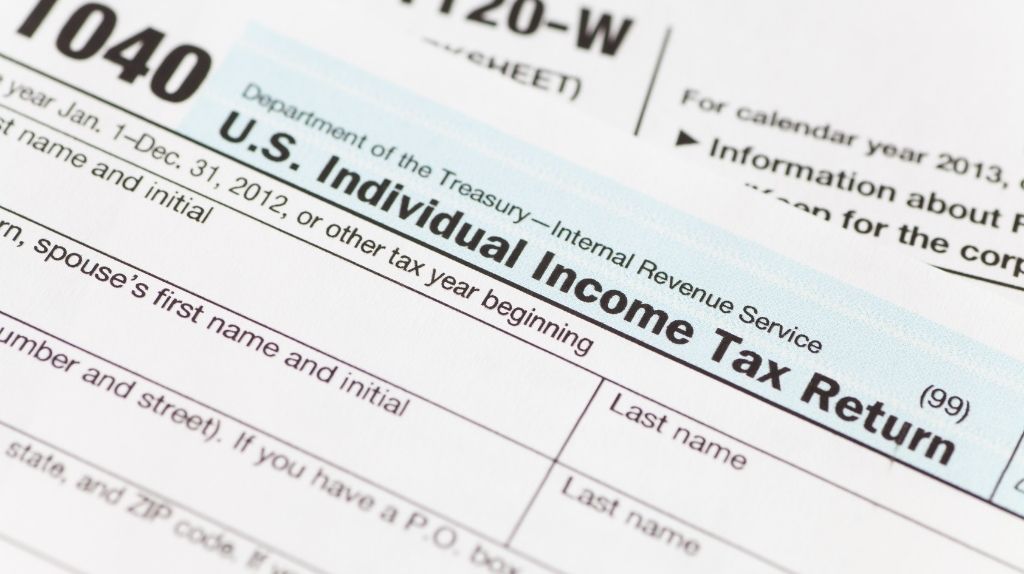
Can you get rejected for a student loan?
A person can be denied a federal student loan. In fact, not everyone gets approved for student loans. This is because there are requirements you have to meet first, before the federal government considers you eligible for an educational fund.
On what you need to know about student loans, I explained fully all you need to know about applying for the various student loans and their applications.
Today’s article focuses on what could cause your Free Application for Federal Student Aid (FAFSA) application to be rejected. There are reasonable reasons for student loan rejection. Besides sieving through applicants who are likely to waste financial resources and time of the US Department of Education, here are what can disqualify you from getting student financial aid.
What Disqualifies You From FAFSA (Free Application For Federal Student Aid)?
As explained by the US Department Of Education, here are education loan rejection reasons.
1. You Did Not Meet FAFSA Major Eligibility Requirements
Prior to approving your FAFSA application, the US Department Of Education makes sure you meet major requirements for federal student aid. Here is a list of what they consider:
- US resident status
- Registration with US Selective Service
- Absence of Social Security Number
- High school Diploma or General Education Development (GED) certificate
- No Prior Loan Default
Let me elaborate these for you.
I. Your US Residential Status Determines Financial Aid Ineligibility Status
Can a non-citizen get denied a student loan?

Your US residential status determines whether you are qualified for a federal student loan or not. Firstly, federal student loan aid is available for US citizens. Here, US citizens refer to people who are United States native-born and naturalized citizens.
Secondly, US residents with permanent resident status can be eligible for student financial aid. This is especially residents with green card and T-1 Visa. Also, you are eligible if one or two of your parents have a T-1 Visa.
Otherwise, you are eligible as a refugee, a parolee, a granted asylum and a Cuban-Haitian entrant. If not, you will not considered eligible for federal student loans.
II. You Are Not Registered With the US Selective Service
The US selective service is an agency of the executive branch responsible for conscripting men in case of a national emergency for national security. Currently, only men within the age range of 18 to 25 years old are allowed to register. If you are older, it is too late for you to register.
To clarify, what selective service means is you will be drafted in case of a serious national security matter. If you are scared to sign up, do not be. This is an honor. Besides, the last active military conscription in the United States was in 1973.
Is the US Selective Service mandatory to get a federal student financial aid?
I would advice you to sign up. This is because there are many federal education scholarships, grants and loans which require you to be in the selective service to qualify. I know this, because I got a federal grant which paid for my junior year in college while a close friend did not. I was in the Selective Service, but it was too late for him.
So yes, signing up for selective service can make you eligible for federal student aid. To register for US Selective Service, click on the link to visit the United States Selective Service System.
III. You Do Not Have Social Security Number
You need social security number for federal student financial aid. Otherwise, your federal student financial aid application will be rejected. Do you know that, my good reader?
According to the Student Financial Aid Questions and Answers For Undocumented Student, undocumented students including DACA students do not qualify for federal student loans. Here, DACA refers to Deferred Action for Childhood Arrivals. Unless such a student has a social security number, he or she will not be eligible.
IV. You Do Not Have High School Diploma or GED Certificate
To apply for federal student aid, you have to graduate from high school with a diploma. Or at least, have a GED certificate to avoid student loan rejection. If not, a non-completion disqualifies you from FAFSA.
So, make sure you are college ready prior to your federal student financial aid application. There is nothing the US Department of Education likes more than sending people who finished high school to college. Get your diploma or GED certificate first for eligibility.
V. You Have An Existing Federal Student Loan Default
Prior to your application, an existing default on a previous student loan can make you ineligible for another one. This is especially in cases where you had used the fund for non-educational purposes. As a result, the US Department of Education will deny you loans until you pay back the borrowed fund.
Moreover, this alone does not qualify as a student loan default. When you engage in federal student loan fraud, it can make you ineligible for further borrowing, until the issue is ratified. So be aware of this fact, or else it disqualifies you from FAFSA.
2. Your Annual Income Is Above Need-Based Financial Aid

Your annual income determines the kind of federal student loan you qualify for. What do I mean by this, my dear reader?
If your annual income is high, you will be denied direct subsidized loan. This is because you need to have financial needs to qualify. But, you can be eligible for direct unsubsidized loan since you do not need to meet a need-based criteria to qualify.
To reiterate, a need-based financial aid is a student loan for adults in college with financial needs. Also, student loans are affected by parents income when you are a dependent. Unless you are 24 years or older, colleges will continue to use your parents’ income tax bracket.
So, what is the maximum income to qualify for FAFSA?
To determine how much you can get, contact your college’s financial aid office. They are the ones who can help you determine eligibility in a case of high annual income. Usually, they use your tax returns or parents’ to counsel you.
3. You Have A History Of Conviction & Criminal Records
Can a felon get federal student aid?
It depends on whether you are currently incarcerated. If so, then eligibility is limited. You can only qualify for non-federal aid and federal pell grant in non-state and non-federal educational institutions.
Otherwise, you are disqualified from getting a student loan from state and federal academic institutions. You will not get federal pell grants or federal student loans. According to the Federal Student Aid Office, you may still qualify for a work study or federal supplementary education opportunity grant. However, the latter needs you to be qualified for federal pell grant before you are considered.
Therefore, it is almost impossible to qualify for federal student aid while incarcerated. But as soon as you are out of the prison, you are free to apply for federal student financial aid. This is as long as you are on parole.
Finally, you do not need to worry about background check. FAFSA does not do a background check for eligibility. They only ask whether you have been convicted on one of their questionnaires. After that, there is no need for them to further dig into your past.
4. You Broke Your Previous Federal Student Loan Conditions
With a federal student aid, you have to abide by the conditions of your student loan to be eligible for next academic year application. If you had not met them, you are disqualified from getting the next federal student loan. In fact, you will be asked to pay back all you had borrowed in order to be considered again.
Here are some mandatory federal student loan conditions to abide by:
I. Meet Satisfactory Grades
By satisfactory grades here, the US Department of Education refers to passing classes with at least a C. This is within the academic year of your borrowed student loan. You have to maintain at least a 2.0 GPA to retain your eligibility.
Can a GPA affect your student loan eligibility?
To simplify, the grades you make in the academic year you borrowed for, should count towards your degree progress. If not, you will lose your federal financial aid. They are very serious about this loan condition. I once knew a college peer who did not prequalify for her student aid because she failed a class.
II. Be Currently Enrolled For 6 Credit Hours Or Full Time
You will lose your financial aid, if you suddenly go below the number of credit hours considered part-time. Granted you take at least 6 credit hours, you will be fine. Otherwise, you will lose your financial aid.
Does this mean you can get FAFSA for part-time?
Yes indeed. As long as you do not go below the part-time status of your college, you will keep your financial aid. But, drop by one credit hour and your financial aid can be taken away. Hence, the need to try to finish classes you registered for.
III. Using Loan For Non-Educational Purposes

You may not believe it, but there are some naive college students who register for classes solely for cashing out their student loans. While this may work, I want you to know it is called a loan fraud. It will cause you to lose federal financial aid.
For example,
If you get about $5000 in loan for 12 credit hours, you cannot drop 4 credit hours to cash some of the money for non-educational purposes. If the Financial Aid Office suspects you of such fraud, you will be penalized. By penalty, your eligibility will be revoked. Then, you will be made to pay back the money.
What Happens If You Are Ineligible For Financial Aid?
Let’s say your student loan is denied, what now?
Well, you have to find other means to pay for college. Personally, I worked and graduated college debt-free. In addition, I apply to many grants and scholarships. I got most scholarships and grants I applied for.
But, it may be because I went to community junior colleges.
Once you transfer to the university, the cost of education is much higher. You may have to pursue private student loans from student-oriented financial institutions. Or else, apply for grants and scholarships.
Now, do not think it is hard to get scholarships or grants. It is quite easy. In total, I got about $11, 000 worth of grants and scholarships from one college alone. During my second degree, I won a few thousand in scholarship. When I graduated, I only owed $6.08 for a highly-demanded degree.
So, it is all about searching for these free student financial packages and applying for them. Sounds easy, is it not?
Additionally, it helps to have a talk with the financial aid office in your college before FAFSA deadline. They are there to counsel you on the best ways to pay your way through the college. Finally, they have the resources needed to make your stay with them successful.
With all these said, I believe this article has covered what disqualifies you from getting financial aid. Be sure to contact your college’s financial aid office for any information. This is because they are there to help you succeed.
I hope college works out for you!




 What You Need To Know About Student Loans
What You Need To Know About Student Loans